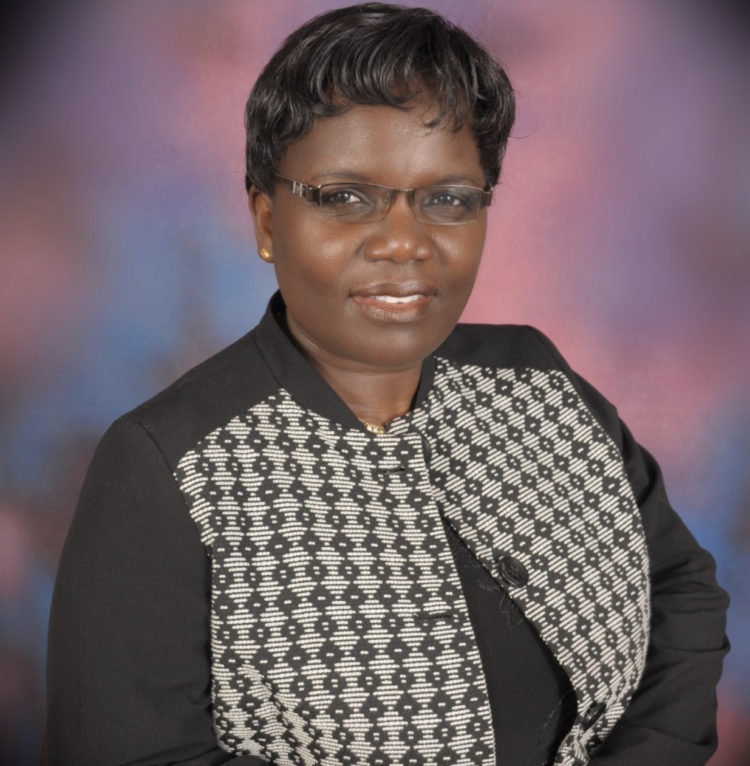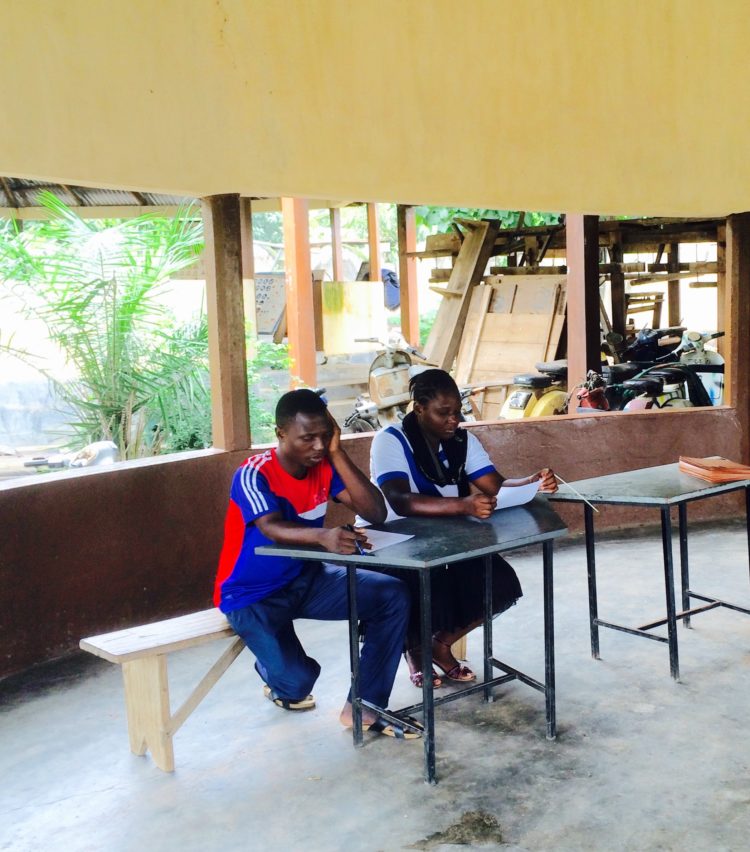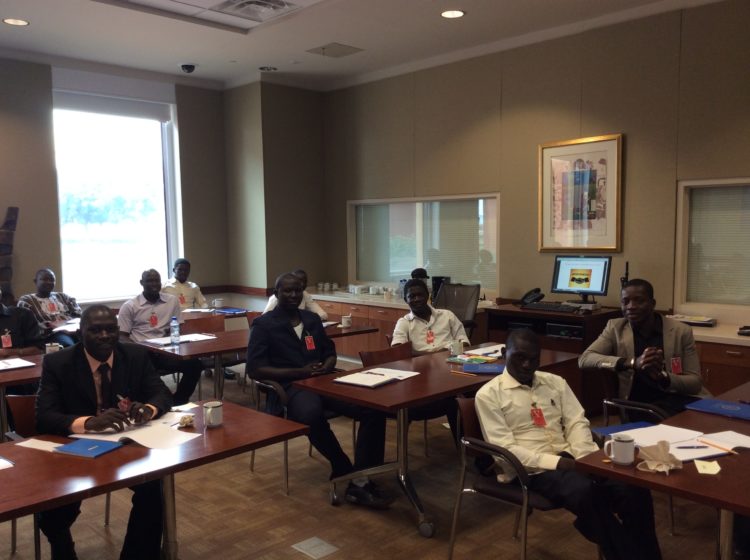Education is undergoing a remarkable transformation right now. Across the continent, the constant concern of skills mismatch between industry demand and qualifications has raised questions on whether it is time to phase out the entire frameworks of the educational system as we know them and design new ones that have the capacity to take into account today and future challenges and opportunities.
For this installment of my thought leadership interview series, I speak with Hendrina Chalwe Doroba, the Manager of the Education and Skills Development Division of the Human Capital, Youth and Skills Department at the African Development Bank in Côte d’Ivoire. And our subject is on rethinking education and skills development for sustainable development in Africa.
Hendrina is a former Executive Director for the Forum for African Women Educationalists (FAWE). In that capacity, she was responsible for coordinating regional programs across the 33 sub-Saharan African countries where FAWE has a presence.

Doroba is a mathematician and an educationalist with over 30 years of work experience in the development sector. She has expertise in the design and development of gender-responsive education and skills development programs, training of trainers on gender-responsive models, project coordination, monitoring and evaluation, policy analysis, and advocacy.
She has a strong commitment to social justice, development work, advocacy, networking to promote equity and quality education for girls and women.
We’re in a time when academic qualification no longer suffices as a test for competency and discipline. In your view, what is education today?
First, we need to understand that education is a process, meaning that it can occur anywhere—at home, the community, and the workplace. And in this case, we are talking about being able to acquire skills and a set of beliefs and habits that can help you be a productive citizen. We also need to acknowledge and appreciate the contribution the current school system plays in education today, including awarding certificates to confirm that a person has gone through the system and gained the expected set of skills.
At the same time, UNESCO data seems to show that around the continent, many students are in school but are not learning. There are several factors involved—sometimes that is caused by the attitude of learners or the gaps in the education ecosystem.
However, I believe that academic qualification is still relevant to society. To whether academic qualification stands the test of competence, that is a debatable issue. And to an extent, yes, they do. Some people have gone through the system and have gained the skills to do specific jobs, and they do an outstanding job. But others have been through the system and got the academic qualification without obtaining the requisite job-readiness skills, while sometimes the skills gained do not meet the demand of the labor market.
Although academic qualification may be a prerequisite for getting hired, what differentiates you in a work environment may not always be your academic qualification. What differentiates you is in how you applied your skills and ability to deliver on the job.
How can African countries create educational models that give young people the tools to tackle the challenges of today and tomorrow?
I believe African governments need to deploy education models that can be adaptable to the prevailing situations and future projection. For instance, we need to put more of an emphasis on experiential learning because rote learning is no longer workable. We also need to set up and/or strengthen the education ecosystem such that when a student graduates, you are confident the individual has acquired the skills the industry needs, and not just leaving with a piece of paper. This calls for a transformation in the methods of teaching, education curriculum design, and stakeholder participation.
For me, it must be a model that is adaptable and flexible and can allow students to be explorative and innovative. Institutions need to find a way to track their progress.
What are your views on the future of work in Africa, and what skills do you think would be most relevant in the coming days?
Most relevant in the future will be soft skills and ICT skills, in addition to professional qualifications. And when I talk about soft skills, these are how you communicate, relate with people, collaborate, and adapt to social situations. These things are not necessarily taught in a classroom or tested across the curriculum. Yet they are important, and one can acquire them in a school, in a home environment, or at the workplace.
Now, talking about the future of work, we have seen what has happened with the coronavirus pandemic. Many of us have continued working while some others are not; because they do not have access to ICT platforms or facilities that can enable them to do their work away from physical offices. I see a situation where ICT skills will be critical. At the same time, your location will not matter much as one can work from anywhere!
This, of course, calls for discipline, creativity, commitment, and transformation of mindset of the employee and employer. And we need to adapt to those new ways of doing things, for Africa not to be left behind. But is the industry, and the continent, ready to adapt to that level of flexibility in the way we work? Have we invested enough in the right infrastructure to facilitate this kind of paradigm shift? The society will have to judge.
One critical challenge to implementing capacity development initiatives, including scaling up efforts in support of higher education, is financing, which is currently inadequate, unpredictable, and unsustainable. Talk about the Bank’s work in the area of education funding on the continent.
As the African Development Bank, first, our strategic focus is on Technical and Vocational Education and Training (TVET), as well as on higher education. This is not to say that we are not concerned about early childhood or primary education. NO! It is just a matter of strategic choice and focus; working to complement what other stakeholders are doing to contribute to the economic transformation of our continent.
We also believe research and development and innovation are critical in the overall scheme of things. So, we have been very selective in that front, looking at skills development, especially in science, technology engineering mathematics and innovation. And, of course, using technical and vocational education and training (TVET) and higher education as entry points.
What the Bank has been doing the past two years is to invest in infrastructure within these institutions—a foundation to ensure that the TVET institutions are equipped adequately to ensure they can train teachers and students to respond to changing demands in the industry. We are also doing the same for higher education institutions and universities. Although some people might not know this, we have seen that several universities have been able to respond appropriately to the Covid-19 incident because of our investments in higher education infrastructure.
E-learning has become more mainstream and transforming the learning environment, but the cost of data is still a significant obstacle. What policy instruments are required to lower the cost of data, maximize content distribution, and enhance participatory learning?
To begin with, we must ensure that we have the necessary infrastructure to help people gain access to digital platforms. The ongoing investment in fiber optic is a commendable step in that direction. We have also seen many African countries investing in different digital tools to boost collaborative teaching and learning.
Besides the cost of data, there is also an issue of electricity and internet facilities. Again, this is a matter of policy. Governments must design enabling policies to address these challenges. Unless people have access to information, it will not be easy even to be part of the work environment we are discussing. And for that to happen, the regulatory frameworks—both in terms of cost and service providers, including cyber security—must be clear and robust enough to protect the user and provider’s interests.
There is a lot of work that governments need to do in the form of policy and regulatory frameworks. Some of these policies are already in place but need to be implemented or monitored. Having a good policy or strategy is one thing, but implementation is equally important.
Talking about digital security, we recently heard about Twitter’s hacking, where some individuals manipulated the accounts of influential figures like Barack Obama. Is online privacy an area of concern to the AfDB?
Yes, it is a concern, and the Bank is doing a lot of work around that to enhance cyber security in the continent. Let me talk about it from my sector’s perspective. One of the things we are pushing for is to ensure that universities and higher institutions of learning introduce courses like cybersecurity so that we are not overly dependent on outsiders.
We should build capacities on the continent to address the cyber issues we are facing. We have the greatest minds on this planet, some working in the largest cybersecurity multinationals, and they are capable of helping to strengthen Africa’s preparedness. We have seen what they can do in crisis periods. Even in cyber defense, we need to facilitate that level of training and creativity to strengthen what is already available—but it must be African born, African grown and led.
Talk about the models and initiatives that are needed to integrate education for sustainable development into teacher training programs.
As a bank, supporting sustainable development is critical and central to the work we do. And we are looking at it from various angles, one of which is adding value to our mineral resources. We have seen in the past that we have been extracting and sending our raw materials outside and importing finished products, which eventually become more expensive and costly for the continent. One of the things we are investing in, and encouraging governments to invest in as well, is to build the capacity of our institutions to set up the kind of training that can help us to meet the demands of adding value to our natural resources.
An example is what we are doing with the University of Zambia and the University of Cape Town, where we set up education for sustainable development programs in the mining and minerals sector. The universities are collaborating with us in exploring how to add value to the mineral extracts while ensuring the environment is equally protected. This has been highly successful, both in capacity building for the students and in teacher training.
On a personal level, my conviction is that a teacher plays a critical role in the learning cycle. If we miss that element of teacher training in the learning process, students will suffer. And remember that at every stage of the study period, students meet different teachers. So we must ensure that we appropriately equip any teacher handling or supporting any of the cycles to do their job well. Learning is a cycle. If you miss something at one point, it becomes difficult, and sometimes more expensive, to recover. As a bank, we are keen on enhancing teacher training at all levels. We are doing a lot on that front, but we can do a lot more if all the stakeholders work collaboratively.
What are your views on the role of the private sector in content development and curriculum design? And what are your views on the call for a diversification of education provision and training partnerships?
The private sector is a critical player in the education cycle. There is no ignoring the fact that there are changing private sector demands, and so we need to find a way to strengthen the collaboration in closing the skills mismatch. A report published by the Bank earlier this year highlighted that some youths entering the workforce are overqualified for the jobs they find. This is due to poor skills-set acquired in classrooms with zero or minimal practical experience in the private sector.
Therefore, the private sector has an important role to play in strengthening the design and development of curriculums including creating opportunities for internships or apprenticeships as this is the only way students can have access to the industry.
On a personal note, the aspect of the private sector playing a role as service providers is a good idea. However, the government must create an enabling policy environment and regulatory framework to ensure that quality standards are maintained because the responsibility for providing education to all lies with the government. In the end, we are in this together, and we must make sure that we reach the unreachable and share best practices across the board. Education is a Human Right!
If you missed the previous installments of this interview series, find them here. To participate in a subsequent discussion, kindly reach out by email at tomchris@sfanonline.org.


